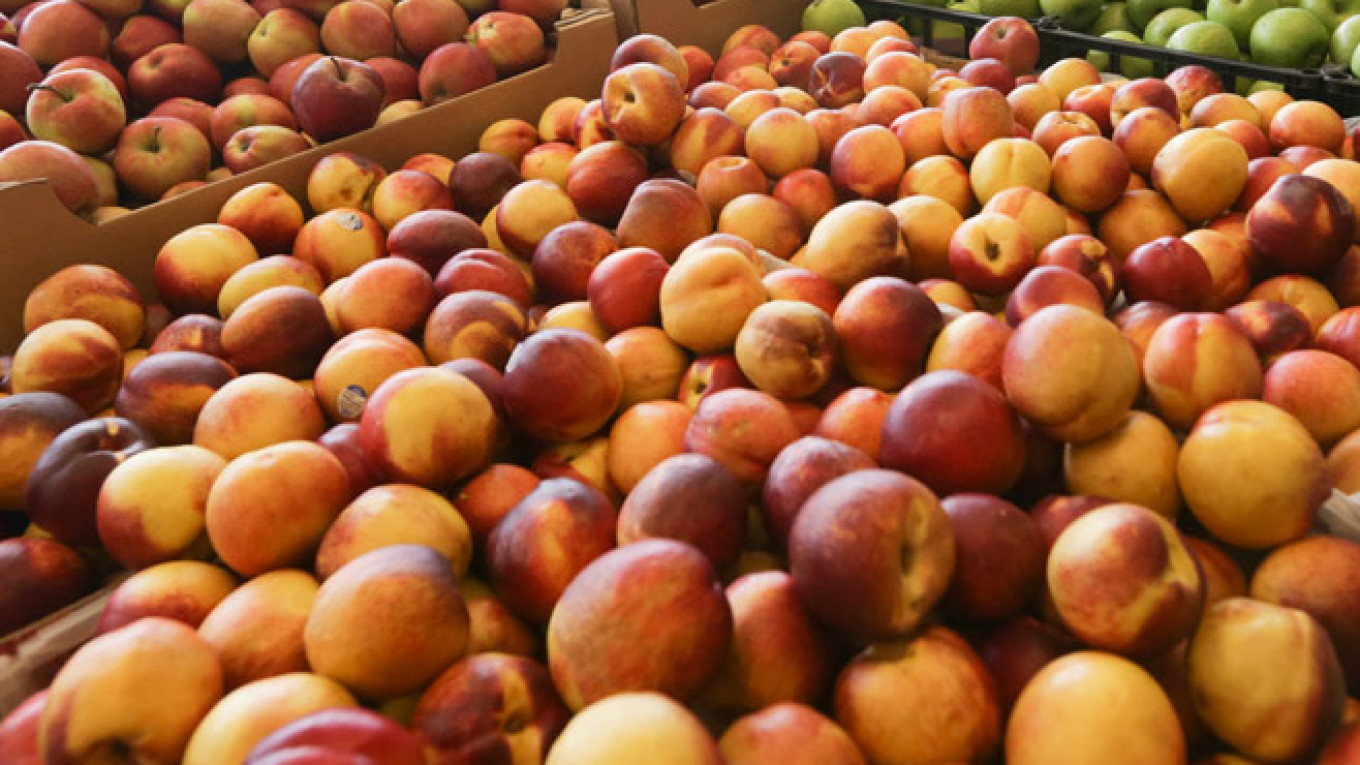BRUSSELS — Measures to support the price of EU dairy products, fruit and vegetables implemented last year in response to a Russian ban on European imports will be extended into next year, the European Commission confirmed Thursday.
The European Commission, the EU executive, decided to take some produce off the market because of oversupply last August after Moscow imposed an embargo on meat, fish, dairy, fruit and vegetables from the European Union, as well as the United States, in retaliation for Western sanctions.
Farmers in France and Belgium, angry at weak agricultural prices, have this week staged protests, blocking roads and supermarket entrances, in some cases disrupting traffic across borders.
President Francois Hollande's government last week announced plans to raise the price of beef, pork and milk and promised farmers up to 1.1 billion euros ($1.2 billion) in tax rebates, delayed payments and loan guarantees.
The commission said on Thursday global demand for milk and dairy products fell throughout last year and the first half of this year, largely because of a slowdown in Chinese imports.
In addition, Russia has extended its embargo on EU products until August 2016, which the commission described as "unjustified and illegal."
"We need to continue to provide a safety net in order to give security to producers who continue to face difficulties in relation to the ban," EU Agriculture Commissioner Phil Hogan said.
For the dairy sector, the measures, to be extended until the end of February, consist of public buying and aid for private storage for both butter and skimmed milk powder.
For fruit and vegetables, the commission proposes to extend until June 30, 2016 measures covering fruits, such as peaches and nectarines, affected by the Russia ban.
These measures include taking the fruit from the market and giving it away to charities or for use in animal feed.
EU rules on market intervention mean it can be agreed at expert level, but at France's request, there is expected to be an emergency meeting of EU agriculture ministers on Sept. 7 to debate the issue further.
A Message from The Moscow Times:
Dear readers,
We are facing unprecedented challenges. Russia's Prosecutor General's Office has designated The Moscow Times as an "undesirable" organization, criminalizing our work and putting our staff at risk of prosecution. This follows our earlier unjust labeling as a "foreign agent."
These actions are direct attempts to silence independent journalism in Russia. The authorities claim our work "discredits the decisions of the Russian leadership." We see things differently: we strive to provide accurate, unbiased reporting on Russia.
We, the journalists of The Moscow Times, refuse to be silenced. But to continue our work, we need your help.
Your support, no matter how small, makes a world of difference. If you can, please support us monthly starting from just $2. It's quick to set up, and every contribution makes a significant impact.
By supporting The Moscow Times, you're defending open, independent journalism in the face of repression. Thank you for standing with us.
Remind me later.






